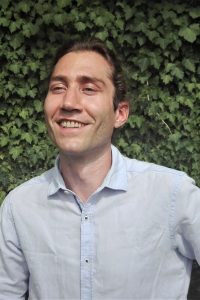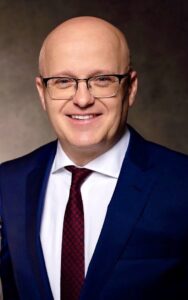International Relations and Political Economy
Our Research Focus
The research unit of International Relations and Political Economy researches the dynamics of global order and the broad fields of foreign (economic) and security policy. The central research foci are transatlantic relations as well as German, European, and American foreign and security policy, with particular emphasis on geoeconomics and global power shifts. Another focus is research on Western statebuilding and stabilization interventions in (post-)conflict societies as well as the influence of non-state armed movements on state formation processes. Investigating the political economy and organizational structure of rebel groups engaged in civil wars and the long-term impact of this legacy of violence on post-conflict statehood in sub-Saharan Africa lies at the heart of this research theme.
Current Projects
Principal Investigators: Prof. Dr. Stefan Fröhlich & Prof. Dr. Ulrich Schlie
Duration: 2023 – 2024
Project Description:
The essay analyzes why there have been serious foreign and security policy misjudgments in recent years, such as the illusions of German energy and Russia policy. It also advocates a reassessment of the economic dimension as part of foreign policy to avoid – for example when dealing with China – making misguided decisions once again in this field. Stefan Fröhlich and Ulrich Schlie advocate a fundamental strategic new beginning. They outline how German security policy should be structured in the future in order to meet the geo-economic and geopolitical requirements of a changed world order in which American power is dwindling, and authoritarian powers are rising.
Principal Investigators: Prof. Dr. Stefan Fröhlich
Duration: 2023 – 2024
Project Description:
The current global geopolitical power struggle for zones of influence will be reinforced by a further development that will be at least as decisive for Europe in the medium and long term as the question of its defense capability: the growing importance of the geo-economy. Governments worldwide rely on economic means to achieve foreign policy and economic goals, but also to develop spheres of influence. They thus reinforce the trend towards nationalism, isolation and conflict readiness (Brexit, Trump, China’s increasingly aggressive attitude, Russia, populism in Europe and the USA). The instruments include targeted sanctions in the areas of finance, travel, military support and trade, export restrictions, but also the strategic restriction or opening of access to bonds, financial transactions or economic aid. In all cases, these are protectionist measures that hinder the international exchange of goods, capital, people or technology. The project examines the adequate answers of Europe and Germany to the geo-economic challenges of the 21st century.
Principal Investigators: Dr. Johannes Jüde
Duration: 2023 – 2024
Funding Institution: Emerging Talent Initiative (ETI), Friedrich-Alexander-Universität: 7.777 €
Website: Emerging Talent Initiative (ETI)
Project Description:
The research project that is developed with the support of ETI-funding aims to examine the impact of non-state armed movements on state-building and state decay, with a specific focus on the Sahel and Horn of Africa regions. The project will explore the long-term effects of civil wars on statehood and how external intervention may contribute to this phenomenon. Through a multi-disciplinary approach that draws on theories of state formation and international statebuilding, peace- and conflict studies, and regional expertise, the project seeks to provide new insights into the complex dynamics of state-building and state decay in the context of armed conflict. The findings of this research will have important implications for policymakers, scholars, and practitioners working on conflict resolution and state-building initiatives in the region.
Completed Projects
Principal Investigator: Prof. Dr. Stefan Fröhlich
Duration: 2016 – 2017
Funding Institution: Transatlantic Academy, 50.000 $
Webseite: “Suspicious Minds – Report (PDF)
The Transatlantic Academy fellows came together in September 2016 and were in residence at the Academy in Washington, DC through May 2017. They engaged in a number of workshops and a joint study trip to Europe and held weekly jour fixes to develop both their individual papers and this concluding collaborative study, which offers some policy ideas for the new U.S. administration and for the German government.
People


